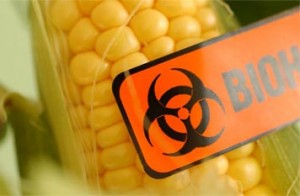
More evidence that low-calorie sweeteners are bad for your health
Studies show that artificial sweeteners can raise the risk of hypertension, metabolic syndrome, type 2 diabetes and heart disease, including stroke.

Some of the world’s biggest food and agriculture companies are pressing the US Food and Drug Administration (FDA) to allow genetically engineered foods be labelled “natural”. It sounds ridiculous but could it happen?
The Grocery Manufacturers Association (GMA), representing companies such as ConAgra Foods, Bayer CropScience and Coca-Cola, is filing a Citizen Petition asking the FDA to issue a regulation allowing GMO derived foods to be labelled as “natural” in the US.
They have set out their case to the FDA in a letter in which they argue that most genetically engineered ingredients are from traditional crops like soya, corn (maize), canola and sugar beets and therefore comply with guidelines for the use of a “natural” label.
How can it be “natural” if it’s patented?
The Center for Food Safety, a Washington DC based campaign and advocacy group says “There is nothing natural about genetic engineering…It is an artificial and novel process, which often involves inserting foreign (often bacterial) genetic material into a food plant, crop or animal.”
And they make what ought to be the killer point:
“The US Patent Office has granted numerous patents on genetically engineered plants, finding that they and novel elements in them are not naturally occurring.”
But nothing in the world of genetic engineering is straight forward.
It’s not “synthetic” or “artificial” – so it’s “natural”?
The GMA’s pivotal argument is that the FDA have consistently maintained the position that genetic engineering is simply an extension of traditional breeding methods and;
“There is no material difference between foods derived from biotechnology and their traditional counterparts”.
Which begs the question why in that case have patents and intellectual property rights been granted to them?
Of course the GMA ignores this and focuses on the fact that whilst the FDA have never defined “natural” they have issued guidelines which exclude only “synthetic and artificial” ingredients from using a “natural” label.
GM crops – they argue – are no different from “traditional” crops and are therefore neither “synthetic” nor “artificial” and could be labelled “natural”.
Buying victory in Congress
The situation is a mess.
According to the GMA there are “approximately 65 class action lawsuits that have been filed against food manufacturers over whether foods with ingredients allegedly derived from biotechnology can be labelled “natural”.”
Their letter also refers to various state initiatives to label GM foods.
The GMA has a clear strategy to move the issue of GM labelling onto the federal stage where they believe they can buy victory.
They are confident the strength of the industry lobby in Congress will either remove state and regional powers to label GM foods:
Or will produce a weak federal label with so many loopholes and grey areas it will be meaningless.
And bizarre as it may seem, it is not inconceivable that they will persuade the FDA to allow GMO derived ingredients to be labelled “natural”.
US GMO policy looks shambolic
The FDA is caught on the horns of a dilemma – and they probably won’t thank the GMA for highlighting it.
On the one hand, as The Center for Food Safety points out, “according to FDA policy, food labels can’t be false or misleading”:
And “a reasonable consumer would not expect foods labelled “natural” to contain GE ingredients.”
But it is also FDA policy that there is no difference between GM and traditional crops:
And this policy underpins the entire regulatory system for genetically engineered crops and food in the US and a number of other countries.
It is not a policy they are going to abandon readily.
But it might be that their attempts to “square” this particular circle will expose them to game changing ridicule.
In UK GM foods are “novel” not “natural”
EU countries have taken a very different approach and sidestepped this dilemma.
Whilst the fatuous notion that GM crops are “substantially equivalent” to non-GM ones is accepted, it is acknowledged that GM foods are different.
In the UK, for example, GM foods are clearly categorised as “novel foods” and the Food Standards Agency is explicit;
“The restriction to “foods of a traditional nature” excludes from the concept of “naturalness” foods derived from novel processes, GM or cloning.”
Another trade deal “obstacle” or “opportunity”?
This fundamental difference between the US and EU approach will have to be dealt with at some point in the negotiations for the proposed EU/US trade deal (TTIP).
The likelihood is that negotiators will not want to deal with it openly and transparently but will try to shuffle it off into some dubious “technical annex” where the outcome will be detrimental to citizens’ interests on both sides of the Atlantic.
This is one of a number of issues where GM labelling campaigners and those objecting to GM technology in the US and the EU need to work closely together.

Please subscribe me to your newsletter mailing list. I have read the
privacy statement